
by Editor | Nov 24, 2019 | News
Intel Corp. is turning its attention to the convergence of high-performance computing and artificial intelligence (AI) with the launch late today of a new general-purpose graphics processing unit that’s optimized for both types of workloads.
In addition, Intel announced its oneAPI initiative, which aims to provide a simpler programming model for developing HPC and AI applications that can run on any kind of architecture, including GPUs, central processing units, field-programmable gate arrays and neural network processors.
Announced at the Supercomputing 2019 event in Colorado today, the new Ponte Vecchio discrete GPUs are built on Intel’s Xe architecture using its most advanced seven-nanometer process and have been designed especially for HPC and AI training workloads.
“Several years ago, Intel saw the need to develop one graphics architecture to scale up from traditional GPU workloads to the new HPC/exascale/AI and deep learning training,” Ari Rauch, vice president and general manager of Intel’s Visual Technologies Team and Graphics Business, said in a press briefing.
According to Michael Dukakis Institute for Leadership and Innovation (MDI), AI technology and application can be a force for relieving us of resource constraints, arbitrary/inflexible rules and processes to solve important issues, such as SDGs.
The original article can be found here.
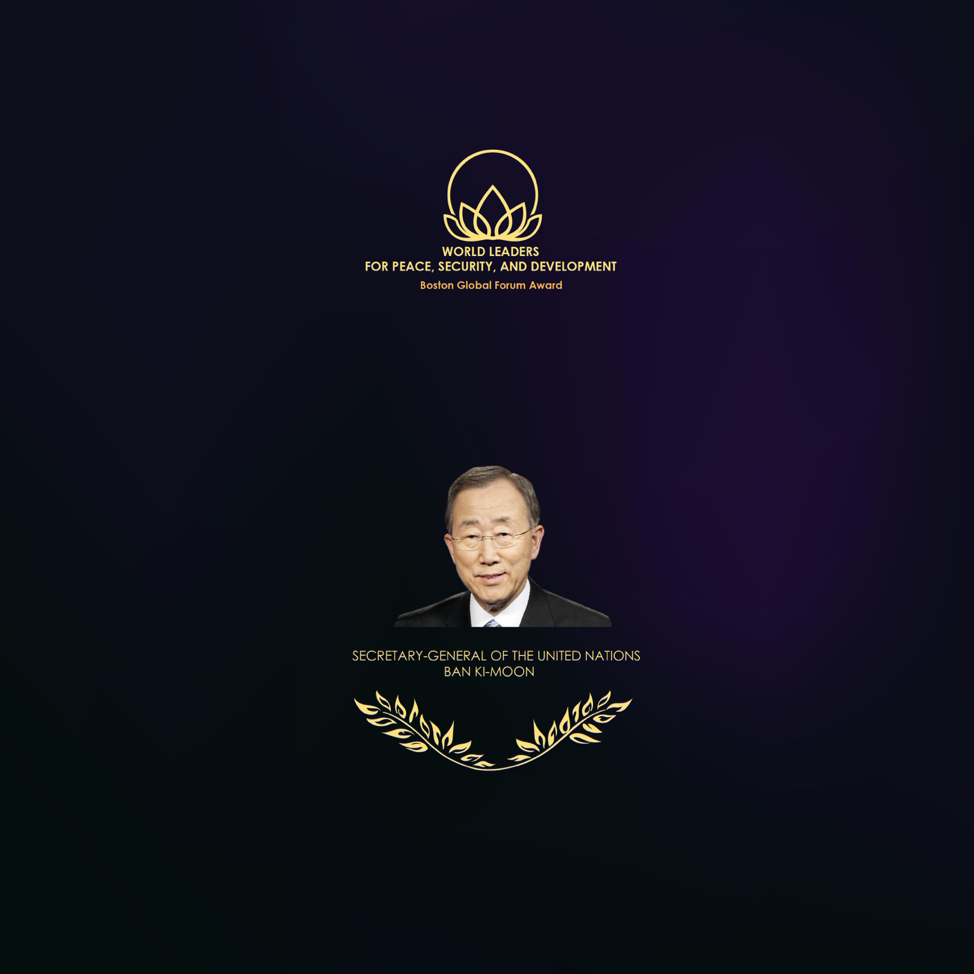
by Editor | Nov 17, 2019 | News
On the first Global Cybersecurity Day on December 12, 2015, the United Nations Secretary-General Ban Ki-moon sent the statement of congratulations. Here is his letter.
Ban Ki-moon was honored with the World Leaders for Peace and Security Award 2016.
—
Message to the Boston Global Forum
Boston, 12 December 2015
It is a pleasure to greet the Boston Global Forum. Thank you, Governor Dukakis, for convening this gathering and for guiding its initiatives.
I welcome your focus on cybersecurity.
Advances in technology and science have opened up wonderful new opportunities, but they have also exposed us to new risks. As our lives have moved increasingly online, so, too, must our values and principles.
Cybersecurity has become a major global challenge, with wide-ranging implications for peace, security, trade and sustainable development. The United Nations has recognized the need to confront the threats that arise from the use of ICTs and the Internet for purposes that are inconsistent with the objectives of the UN Charter and the Universal Declaration of Human Rights.
Member States have been working to develop a global culture of cybersecurity that can fight cybercrime and cyber-attacks while protecting freedoms and sharing the benefits of ICTs and the Internet.
Cybersecurity will also be crucial as we implement the recently adopted 2030 Agenda for Sustainable Development, which will require us to tap into the potential of the data revolution and close today’s still-large digital divides.
On 15-16 December, the United Nations General Assembly will convene a High-level Meeting to review progress in the implementation of the outcomes of the World Summit on the Information Society. Your discussion at this year’s Boston Global Forum can provide a timely contribution as we strive together to meet these challenges.
Thank you for your support, and please accept my best wishes for a productive Forum.
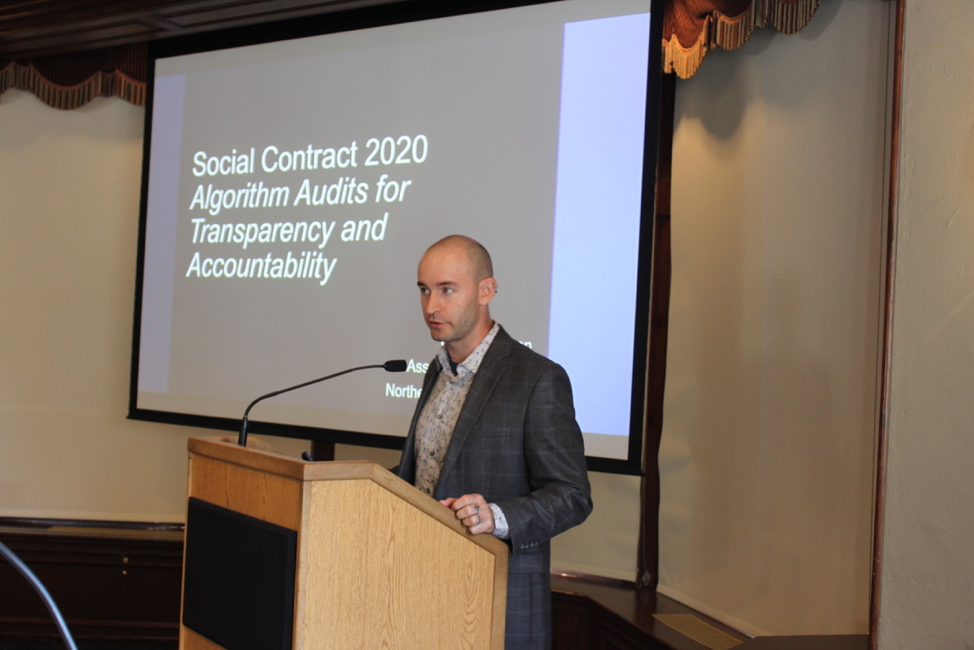
by Editor | Nov 17, 2019 | News
The AIWS Innovation Network will be officially launched on Global Cybersecurity Day Symposium December 12, 2019 at Loeb House, Harvard University. Professor Wilson, a Michael Dukakis Leadership Fellow, a founding member of the Cybersecurity and Privacy Institute at Northeastern, Berkman Klein Fellow of Harvard Law School, will lead the section to monitor and audit governments and companies in ethics, norms, and standards of AI, and the AIWS Social Contract 2020. He presented the ideas for this in AIWS Conference September 23, 2019 at Harvard University Faculty Club. With purpose to alarm governments and companies that violate norms, standards, and the AIWS Social Contract 2020, this section will contribute reports and call for actions to maintain norms of the AIWS Social Contract 2020 as framework for peace, and security in Digital Age.
Governor Michael Dukakis, Mr. Nguyen Anh Tuan, and Professors Alex Pentland (MIT), Nazli Choucri (MIT), David Silbersweig (Harvard), Thomas Patterson (Harvard) are co-founders of the AIWS Innovation Network. The Network is sponsored by MIT Connection Science and the Massachusetts Government.
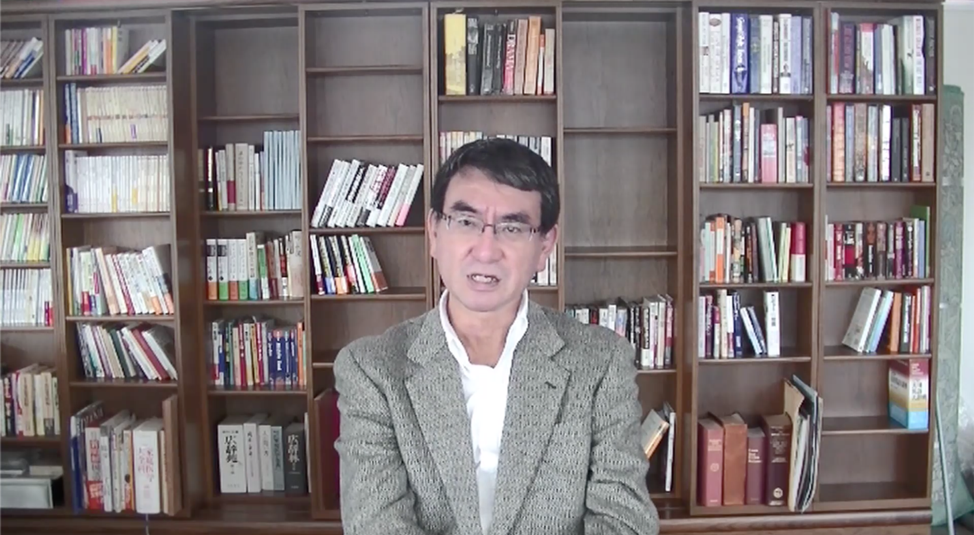
by Editor | Nov 17, 2019 | Event Updates
Minister Taro Kono will speak “On a Vison for Ensuring Trusted Data for use by the Japanese Government” at Global Cybersecurity Day Symposium, 8:30 am – 12:00 pm, December 12, 2019 at Loeb House, Harvard University.
Boston Global Forum created the Annual Global Cybersecurity Day in 2015. Every year, on December 12, Boston Global Forum will organize a Global Cybersecurity Day Symposium with topics about cybersecurity and data safety.
This year, the topic is Enhancing Cybersecurity in AI World Society.
Global Cybersecurity Day is meant to inspire the shared responsibility of the world’s citizens to protect the Internet’s safety and transparency. As a part of this initiative, Boston Global Forum (BGF) also calls upon citizens of goodwill everywhere — from ordinary people to leaders — to follow BGF’s Ethics Code of Conduct for Cyber Peace and Security (ECCC).
BGF includes, among others, scholars, business leaders and journalists, and is chaired by former Massachusetts Gov. Michael Dukakis, a national and international civic leader and BGF’s co-founder.
At the Annual Global Cybersecurity Day Symposium, BGF also celebrates and presents the World Leader for Peace and Security Award. This year, President of Latvia and the World Leadership Alliance-Club de Madrid, Vaira Vike-Freiberga, is honored as a World Leader for Peace and Security.
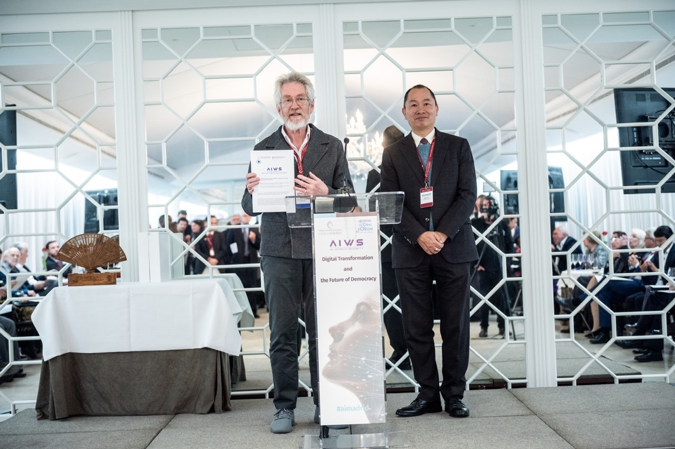
by Editor | Nov 17, 2019 | News
Data cooperatives with fiduciary obligations to members provide a promising direction for the empowerment of individuals through their own personal data. A data cooperative can manage, curate and protect access to the personal data of citizen members. Furthermore, the data cooperative can run internal analytics in order to obtain insights regarding the well-being of its members. Armed with these insights, the data cooperative would be in a good position to negotiate better services and discounts for its members. Credit Unions and similar institutions can provide a suitable realization of data cooperatives.
Several states have now asked credit unions to look into the idea of data cooperatives, but the model has yet to gain a foothold. “Credit unions are conservative,” Professor Pentland said. But assuming the idea gains traction, the infrastructure won’t be difficult to build. Technology exists to automatically record and organize all the data that we give to companies; and credit unions, which have 100 million members nationwide, possess charters readymade to take on data management.
Professor Pentland contributed his idea to the AI World Social Contract 2020, which will be discussed at Global Cybersecurity Day Symposium on December 12, 2019, at Loeb House, Harvard University: Every citizen is entitled to basic rights and dignity that are enlarged by AI and in the Internet Age and entail greater responsibility:
Data Rights and Responsibilities for Citizen: each citizen will be entitled to access to a smart phone or similar device and will control their own data (Data Home), including a right to privacy.
Individuals would pool their personal data in a single institution — just as they pool money in banks — and that institution would both protect the data and put it to use. Credit unions as one type of organization that could fill this role. And while companies would need to request permission to use consumer data, consumers themselves could request analytic insights from the cooperative.
Professor Alex Pentland, MIT, is one of top 7 most powerful data scientists. He is a co-founder of the AIWS Innovation Network and the AIWS Social Contract 2020.

by Editor | Nov 17, 2019 | News
The challenge is to infuse human values into Industry 4.0. Trust, fairness and empathy should be preserved in this cyber age.
The fourth Industrial Revolution has swept the world, leaving its indelible impact on the shop floor, in stores, offices, boardrooms and beyond. The fusion of technologies that characterizes this revolution has triggered a wave of transformative change, impacting society in ways we could not have imagined earlier and at a pace that we have not seen before.
The benefits of digital technologies are many. They have the power to revolutionize society as, for the first time, the disadvantaged have access to information, services, skilling opportunities and markets that can enable them to improve their lives. However, as in the case of the earlier Industrial Revolutions, this one too, brings formidable challenges for society. The frenetic speed of digital adoption and the entry of machines is making the skills of millions of people irrelevant almost overnight. It also raises the need to determine what a machine should do and which tasks should remain under a human’s purview.
In addition, the Michael Dukakis Institute for Leadership and Innovation (MDI) also established the Artificial Intelligence World Society (AIWS) for the purpose of promoting ethical norms and practices in the development and use of AI to serve and strengthen democracy, human rights, and the rule of law.
The original article can be found here.
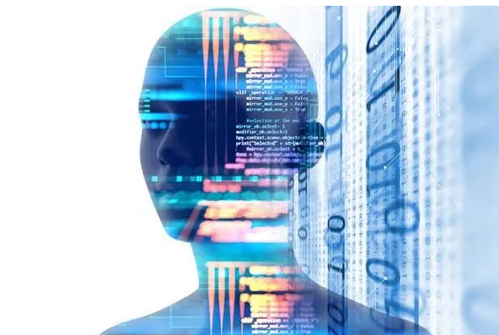
by Editor | Nov 17, 2019 | News
Google researchers have revealed they are taught an artificial intelligence (AI) machine how to smell, bring the cyber-sense up to the standards of sight and hearing. Google’s Brain Team described how they used machine-learning to train a robot to accurately categories different smells by assessing their molecular structure. The robot was instructed via a database containing 5,000 molecules analyzed and identified by perfume makers with descriptions such as “earthy” and “pungent”.
Researchers inputted two-thirds of the database into the machine’s neural network. Then the AI bot passed after analyzing the remaining scents. Researchers have long attempted to program a sense of smell using artificial intelligence, but significant issues have proved problematic. Difficulties included the subjectivity involved in describing smells.
Based on analogous advances in deep learning for sight and sound, it should be possible to directly predict the end sensory result of an input molecule, even without knowing the intricate details of all the systems involved. Solving the odor prediction problem would aid in discovering new synthetic odorants, thereby reducing the ecological impact of harvesting natural products.
According to Michael Dukakis Institute for Leadership and Innovation (MDI), AI technology and application can be a force for helping people achieve well-being and happiness and relieving them of resource constraints and arbitrary/inflexible rules and processes.
The original article can be found here.

by Editor | Nov 10, 2019 | News
With the philosophy of AI Humanism, Boston Global Forum establishes AI World Society Innovation Network (AIWS Innovation Network) to:
1. Create an environment to develop applications of AI for governments, companies:
AIWS Innovation Network will connect and receive demands from governments, connect with resources from top universities, and connect companies to provide services for governments and companies.
2. Build a better world with norms of AIWS Social Contract 2020
Connect and encourage leaders to monitor governments and businesses that violate standards and norms and compromise with dictatorships or totalitarian governments.
AIWS Young Leaders calls and supports concepts, standards, and norms of the AIWS Social Contract 2020.
Public Policy Group: contribute to develop AIWS Social Contract 2020 and policies, initiatives for AI
Activists Group: organize campaigns both offline and online to support for the AIWS Social Contract 2020.
Monitor Group: report on governments and corporations that violate AIWS Social Contract 2020 norms, standards, and concepts (we call for the isolation of those governments and corporations).
3. Creative and Innovative works, especially art and culture in AI
Philosophy: AI Humanism
Develop recommendations for the use of AI for public good.
This would complement the current AIWS/BGF work that is developing ethics and cybersecurity, which call to action to counteract the negative, manipulative, surveillance, micro-targeting use of AI.
It could focus on ways to reach, connect, and co-create with people and groups to enhance positive wellbeing and interactions and peaceful and enduring solutions.
4. Mentorship: Former presidents, former prime ministers, current leaders, thoughtleaders to inspire and encourage AIWS Young Leaders and support their activities.
BGF will officially launched AIWS Innovation Network at Global Cybersecurity Day Symposium December 12, 2019 at Loeb House, Harvard University.

by Editor | Nov 11, 2019 | News
Standards and Norms of the Social Contract 2020 are very good ideas, but how does one enforce them? Great powers such as USA, China, and Russia do not cooperate or trust each other. In addition, big companies and corporations try to become dictators in AI and big data.
How does one solve this dangerous issue? The Boston Global Forum calls for an alliance between OECD, G7 governments, leaders of civil society, and former leaders to solve this dangerous issue.
AI World Society Young Leaders will contribute to monitor violations of norms, standards, and the Social Contract 2020 and report to the Alliance.
Based on data from monitoring, AIWS Young Leaders build the Ethics Index about governments, companies.
AI World Society Young Leaders are present in many countries as US, Canada, Europe, Australia, New Zealand, Japan, India, Vietnam, and Latin America.








